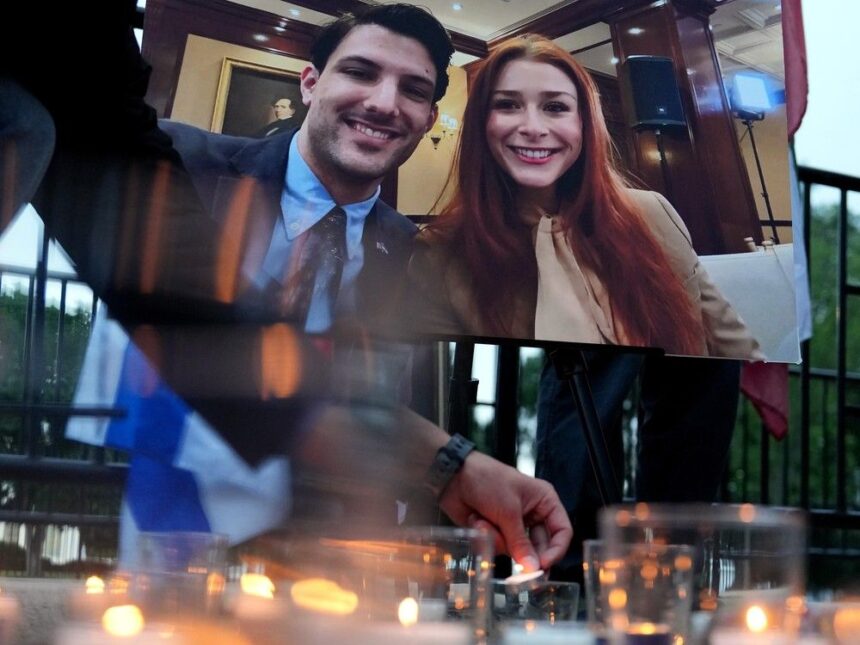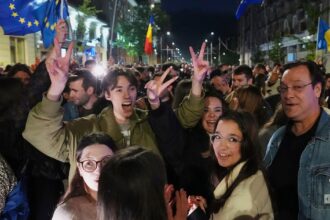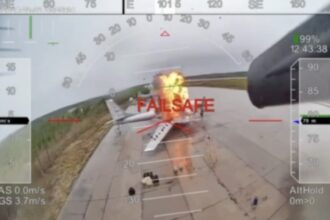In a disturbing escalation of tensions reaching American soil, a man who allegedly opened fire at a Jewish event near Cleveland last week told police he had deliberately purchased a ticket to the gathering after seeing it advertised on Instagram, according to court documents released Monday.
Fayez Khaled Alanazi, 33, faces federal hate crime charges after allegedly firing shots outside the Jewish outreach event in Brooklyn, Ohio on July 26. The criminal complaint reveals a calculated attack that has sent shockwaves through Jewish communities nationwide and raised urgent questions about security at religious and cultural gatherings.
“I went to their event and I shot,” Alanazi reportedly told police after his arrest, according to the criminal complaint filed in federal court. When officers asked why he targeted the event, he responded with a chilling directness: “Palestine.”
The investigation has uncovered that Alanazi, a Saudi national residing in Ohio on a student visa, purchased the $18 ticket to the event which featured Jewish speakers discussing their experiences in Israel. Witness accounts describe him standing up during the presentation and firing multiple shots before attendees tackled him to the ground, preventing what could have been a far more tragic outcome.
“The evidence suggests this was not a spontaneous act but a deliberately planned attack targeting individuals based on their faith,” said Special Agent Marcus Johnson of the FBI’s Cleveland field office. “This case is being treated with the utmost seriousness.”
The incident occurs against a backdrop of rising antisemitic incidents across North America since the October 7 Hamas attack on Israel and the subsequent military campaign in Gaza. The Anti-Defamation League has reported a 388% increase in antisemitic incidents in the months following October 7 compared to the same period the previous year.
Security camera footage reveals Alanazi arrived at the event wearing a keffiyeh, a traditional Middle Eastern scarf often worn as a symbol of Palestinian solidarity. During police questioning, he reportedly expressed support for Palestinians and acknowledged his intent to target the Jewish gathering specifically.
Law enforcement officials recovered a handgun at the scene along with multiple shell casings. Remarkably, despite the gunfire, no fatalities were reported, though one person sustained minor injuries during the chaotic moments of subduing the gunman.
“The suspect was shot approximately 21 times by responding officers,” confirmed Brooklyn Police Chief Scott Mielke at a press conference. “His actions represent the kind of domestic terrorism that requires vigilance from both law enforcement and communities.”
The attack has prompted Jewish organizations across Canada and the United States to review their security protocols. Many are now implementing enhanced screening measures, hiring additional security personnel, and coordinating more closely with local law enforcement for upcoming events.
“We cannot allow fear to dictate how we practice our faith or celebrate our culture,” said Rebecca Goldstein, director of the Canadian Jewish Federation. “But we must also acknowledge the very real threats that exist and take appropriate precautions.”
Political leaders across the spectrum have condemned the attack, with many calling for increased resources to combat religiously motivated violence. The incident has also reignited debates about visa screening procedures and the monitoring of individuals who may pose security threats.
As communities grapple with the implications of this attack, the question remains: how can we protect the fundamental right to religious and cultural gatherings while effectively preventing such targeted violence in an increasingly polarized world?










